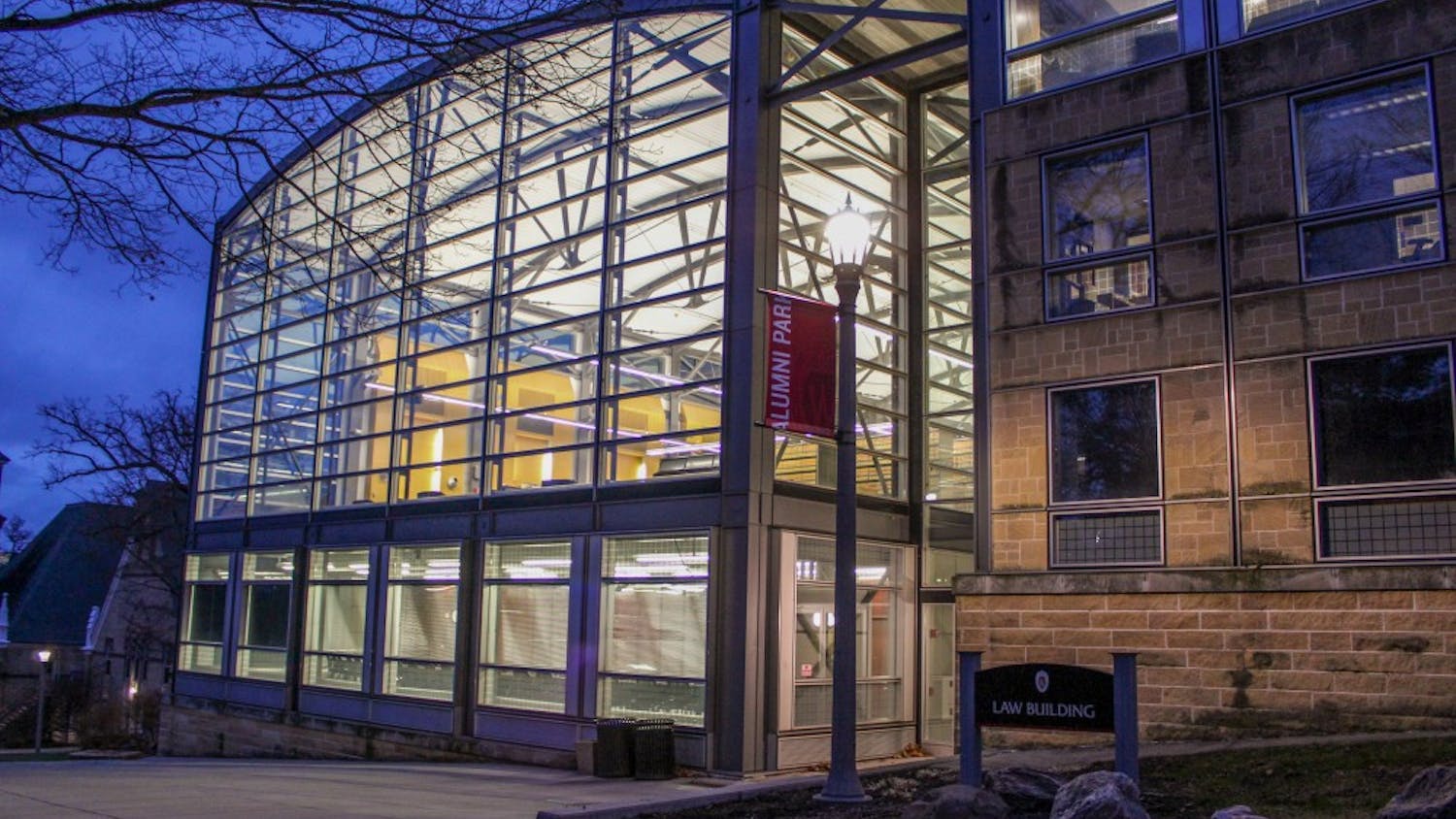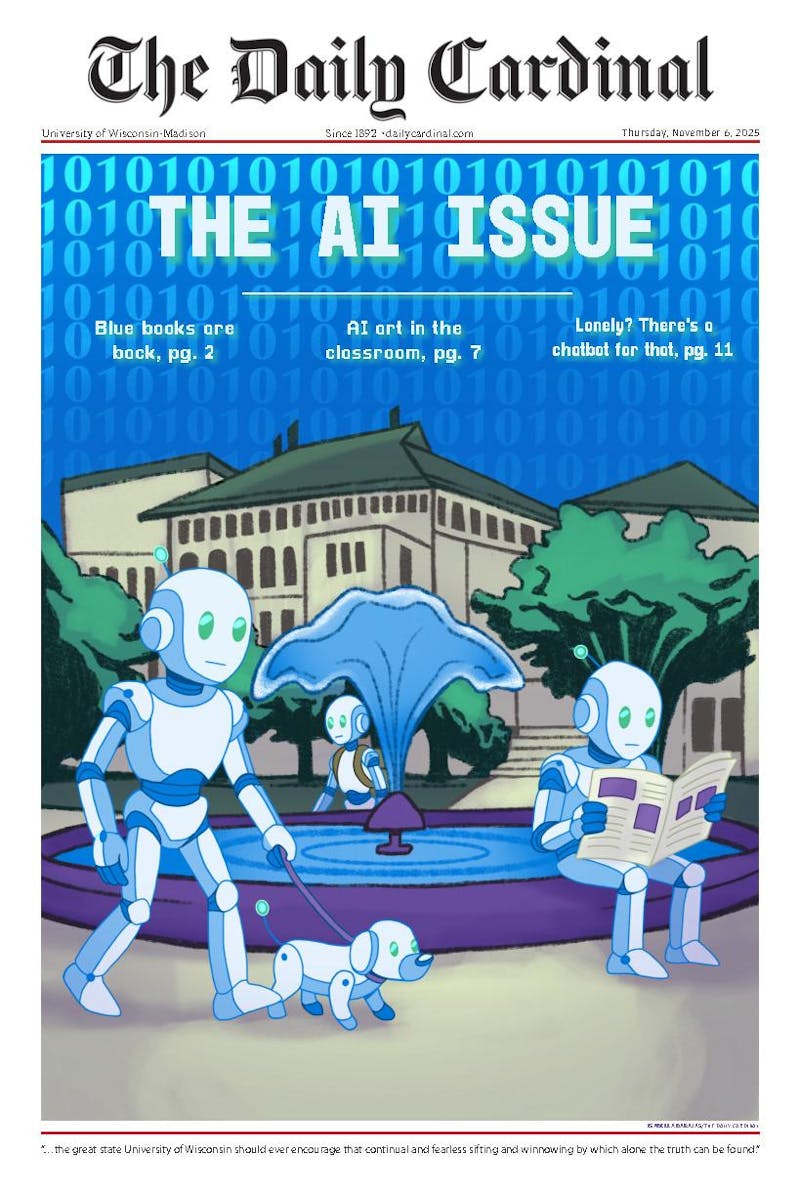911 Call Center drama
It's been more than a year since the Dane County 911 Center mishandled the call from the Brittany Zimmermann murder. Since that time, the center has made some big changes but remains without vindication for its mishandling of the Zimmermann case and a subsequent murder in November.
An irate public battered 911 Center Director Joe Norwick's reputation, looking for someone to hold accountable for the lack of action during the Zimmermann case. In September, Norwick announced his resignation. Later research showed that many issues with the emergency response unit were because of overworking a dedicated staff in a high-pressure environment.
Dane County Executive Kathleen Falk, who publicly apologized for the 911 Center's inaction in the Zimmermann murder, named 911 Director for the city of Minneapolis John Dejung the new director of Dane County's 911 Center. Dejung assumes the role in June and represents the turning of a page for an emergency unit that has taken much heat for its actions over the past few years.
Eagon, Maniaci elected to Madison Common Council
The Common Council saw a changing of the guard this year with Bryon Eagon and Bridget Maniaci winning seats in elections for Districts 8 and 2, respectively. Eagon, a junior at UW-Madison, succeeded former District 8 alder Eli Judge after defeating Mark Woulf in the general election.
Considering his in-depth knowledge of the issues and his incredibly detailed plans for public safety and tenants' rights, it was no surprise when Eagon won by a landslide on Election Day, and we expect he will be able to fill the large shoes of Judge without missing a beat.
On the other hand, Maniaci's victory was much less expected. Tasked with unseating incumbent District 2 Alder Brenda Konkel, Maniaci was thought of as a long shot. But for those in the city who had become tired of Konkel's irrational policies and abrasive behavior, it was a welcome surprise when Maniaci narrowly defeated Konkel despite criticisms she would be a rubber stamp"" for Mayor Dave Cieslewicz, under whom Maniaci had previously interned.
Although it remains to be seen if she can break away from that reputation, it would appear that Maniaci will at least move the council in a more pragmatic direction.
Obama's elected president
On Nov. 4, America heeded our endorsement and elected Barack Obama, the first African-American president in our nation's history. Basing his campaign off the optimistic ideals of hope and change, Obama injected political fervor into a society reeling in a recession and a stagnant ""War on Terror.""
The change this editorial board wanted to see, however, was the end of the bitter partisanship that existed during the Bush administration. The partisan rhetoric of power-starved minority congressional leadership in 2008 manifested itself into a stimulus bill loaded with pork, failing to lend a hand of compromise to Republican counterparts. This cannot continue, unless we strive for another decade of polarizing politics.
Obama recently passed his 100th day in office, and there are few tangible results he has produced thus far, but his policy-making and direction are enough to preserve our initial optimism, as we hopefully pass into a new era of bipartisanship.
Biddy Martin's first year
Although much of Chancellor Biddy Martin's year was characterized by hosting forums, she finally took decisive action by putting forth the Madison Initiative for Undergraduates. The initiative consists of cumulatively raising tuition by $250 per year for in-state students and $750 per year for out-of-state students for the next four years, with private donations matching these increases.
Although an increase in tuition should always be approached with caution, the investments in staff and financial aid created by the initiative will be beneficial enough to outweigh any doubts. UW-Madison's tuition will still remain below the median for Big Ten schools, and students from families with incomes of less than $80,000 will not be affected. Furthermore, the value of students' degrees will increase as the initiative increases UW-Madison's ability to attract and retain talent. With other money from the initiative going to fund grants for low-income students, it seems that Martin is trying her best to keep education both as accessible and valuable for Madison students.
Football Ticket Problems
After considerable negative feedback resulting from personal correspondence with students, student season ticket holder surveys conducted throughout last season and a postseason student focus group, football season ticket distribution has been revamped to a similar format from two years ago. The first-come, first-serve basis will allow all undergraduate classes to purchase season tickets beginning June 22 at 8:30 a.m., and graduate and professional students will be able to purchase tickets after July 6 at 8:30 a.m. This will give undergrads two weeks to claim their share of the student section, though the graduates and professionals will be reserved a minimum of 1,700 tickets. Most other procedures will remain unchanged, including the voucher exchange system.
Now that student opinion has been heard and respected, the responsibility now lies on students' shoulders. Calls to show up for games before halftime and to avoid vast reselling of season tickets for amounts far greater than their face value are placing the emphasis on students to live up to their end of the bargain. Yet those who remember ticket sales two years ago will undoubtedly recall that only a portion of students received e-mails informing them of the sales date, so there is some responsibility on the university to get the word out and to prepare for the overwhelming surge uwbadgers.com will receive when sales open.
ASM Constitution Failure
Associated Students of Madison tried valiantly to shed its shell of futility and irrelevance to the student body this year with a new constitution proposal. Ironically, one of the greatest student body turnouts in ASM election history (15 percent) voted emphatically to oppose the new constitution.
The new constitution, which was frequently and inaccurately slandered by the opposing Vote No Coalition, couldn't escape labels of ""centralized power"" and unfounded musings that grassroots efforts would be eliminated and student group funding would be jeopardized. Unfortunately, what might have been the best chance of improving ASM's tepid service to the student body was crippled by a continuing failure to connect with students, and the Constitutional Committee was unable to dispel erroneous labels and promote the constitution's value.
ASM should take note where the Vote No Coalition succeeded and improve their outreach and marketing approach. Student government by nature will never capture the interests of a majority of students, but that doesn't mean plodding along with sparsely attended listening sessions is a satisfactory route. Reaching students in their natural environment rather than expecting them to visit theirs is essential, and it will probably take some creativity and hard work.
Where does ASM go from here? It's hard to say what it will take for the organization to function at its potential. Hopefully a year of publicized reform debate and drama will instill in its members a sense of greater responsibility and accountability to students. But in the end, they only control a couple million dollars of student money. No big deal.





